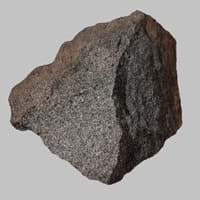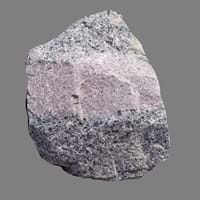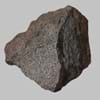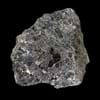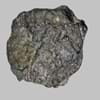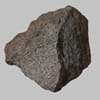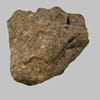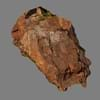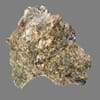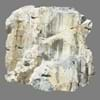Definition
Websterite is ultramafic and ultrabasic rock that consists of roughly equal proportions of orthopyroxene and clinopyroxene. It is a special type of pyroxenite.
Aplite is a fine-grained granite composed mainly of feldspar and quartz
Origin
Webster, North Carolina
Iran
Discoverer
Unknown
Unknown
Etymology
From the town of Webster located in North Carolina
From German Aplit, from Greek haploos simple + -ite
Class
Igneous Rocks
Igneous Rocks
Sub-Class
Durable Rock, Hard Rock
Durable Rock, Hard Rock
Other Categories
Coarse Grained Rock, Opaque Rock
Fine Grained Rock, Opaque Rock
Texture
Clastic, Granular, Phaneritic, Porphyritic
Granular, Graphic
Color
Black to Grey, Bluish - Grey, Dark Greenish - Grey, Green, Light Greenish Grey
Black, Grey, Orange, Pink, White
Durability
Durable
Durable
Scratch Resistant
Yes
Yes
Appearance
Layered, Banded, Veined and Shiny
Veined or Pebbled
Interior Uses
Countertops, Decorative Aggregates, Entryways, Floor Tiles, Flooring, Interior Decoration
Bathrooms, Countertops, Decorative Aggregates, Entryways, Floor Tiles, Homes, Hotels, Kitchens, Stair Treads
Exterior Uses
As Building Stone, As Facing Stone, Garden Decoration, Paving Stone
As Building Stone, As Facing Stone, Bridges, Paving Stone, Near Swimming Pools, Office Buildings, Resorts
Other Architectural Uses
Curbing
Curbing
Construction Industry
As Dimension Stone, Building houses or walls, Cement Manufacture, Construction Aggregate, for Road Aggregate
As Dimension Stone
Medical Industry
Not Yet Used
Not Yet Used
Antiquity Uses
Artifacts
Artifacts, Monuments, Sculpture, Small Figurines
Commercial Uses
Cemetery Markers, Commemorative Tablets, Creating Artwork, Laboratory bench tops, Jewelry, Sea Defence, Tombstones
Curling, Gemstone, Laboratory bench tops, Small Sculptures, Tombstones
Types
Not Available
Not Available
Features
Generally rough to touch, Is one of the oldest rock
Available in lots of colors, Available in Lots of Colors and Patterns, Is one of the oldest rock
Archaeological Significance
Monuments
Not Yet Used
Used
Famous Monuments
Data Not Available
Data Not Available
Sculpture
Not Yet Used
Used
Famous Sculptures
Data Not Available
Data Not Available
Pictographs
Not Used
Not Used
Petroglyphs
Not Used
Not Used
Figurines
Not Yet Used
Used
Formation
Websterite can be formed as cumulates in ultramafic intrusions by accumulation of pyroxene crystals at the base of the lava chamber.
Aplites belong to intrusive igneous rocks which are mostly quart and alkali feldspar and are formed from residual eutectic granitic liquids and represent the final crystallization products of magma.
Mineral Content
Amphibole, Augite, Bronzite, Chromite, Diopside, Enstatite, Garnet, Hornblende, Hypersthene, Magnetite, Pyroxene
Amphibole, Biotite, Feldspar, Hornblade, Micas, Muscovite or Illite, Plagioclase, Pyroxene, Quartz
Compound Content
Aluminium Oxide, CaO, Chromium(III) Oxide, Iron(III) Oxide, Potassium Oxide, MgO, Sodium Oxide, Silicon Dioxide, Sulfur Trioxide
Aluminium Oxide, CaO, Iron(III) Oxide, FeO, Potassium Oxide, MgO, MnO, Sodium Oxide, Phosphorus Pentoxide, Silicon Dioxide, Titanium Dioxide
Types of Metamorphism
Burial Metamorphism, Impact Metamorphism
Burial Metamorphism, Cataclastic Metamorphism, Hydrothermal Metamorphism, Regional Metamorphism
Types of Weathering
Biological Weathering, Chemical Weathering, Mechanical Weathering
Chemical Weathering, Mechanical Weathering
Types of Erosion
Chemical Erosion, Coastal Erosion, Glacier Erosion, Water Erosion, Wind Erosion
Chemical Erosion, Coastal Erosion, Wind Erosion
Grain Size
Coarse Grained
Very fine-grained
Fracture
Uneven
Not Available
Streak
White, Greenish White or Grey
White
Porosity
Less Porous
Less Porous
Luster
Dull to Vitreous to Submetallic
Dull to Pearly to Subvitreous
Compressive Strength
Not Available
Cleavage
Irregular
Not Available
Toughness
Not Available
Not Available
Specific Gravity
3.2-3.5
2.6
Transparency
Opaque
Opaque
Density
3.1-3.6 g/cm3
2.6 g/cm3
Specific Heat Capacity
Not Available
Resistance
Impact Resistant, Pressure Resistant, Wear Resistant
Heat Resistant, Wear Resistant
Deposits in Eastern Continents
Asia
India, Russia
China, India, Iran, Saudi Arabia, Sri Lanka, Taiwan, Thailand, Turkey, Vietnam
Africa
South Africa
Angola, Egypt, Madagascar, Namibia, Nigeria, South Africa
Europe
Germany, Greece, Italy, Scotland, Turkey
Austria, Belgium, Finland, France, Germany, Italy, Norway, Sardinia, Spain, Switzerland, The Czech Republic, Venezuela
Others
Greenland
Not Yet Found
Deposits in Western Continents
North America
Canada, USA
Canada, USA
South America
Brazil, Colombia, Venezuela
Not Yet Found
Deposits in Oceania Continent
Australia
New Zealand, Queensland
Not Yet Found
All about Websterite and Aplite Properties
Know all about Websterite and Aplite properties here. All properties of rocks are important as they define the type of rock and its application. Websterite and Aplite belong to Igneous Rocks.Texture of Websterite is Clastic, Granular, Phaneritic, Porphyritic whereas that of Aplite is Granular, Graphic. Websterite appears Layered, Banded, Veined and Shiny and Aplite appears Veined or Pebbled. The luster of Websterite is dull to vitreous to submetallic while that of Aplite is dull to pearly to subvitreous. Websterite is available in black to grey, bluish - grey, dark greenish - grey, green, light greenish grey colors whereas Aplite is available in black, grey, orange, pink, white colors. The commercial uses of Websterite are cemetery markers, commemorative tablets, creating artwork, laboratory bench tops, jewelry, sea defence, tombstones and that of Aplite are curling, gemstone, laboratory bench tops, small sculptures, tombstones.
